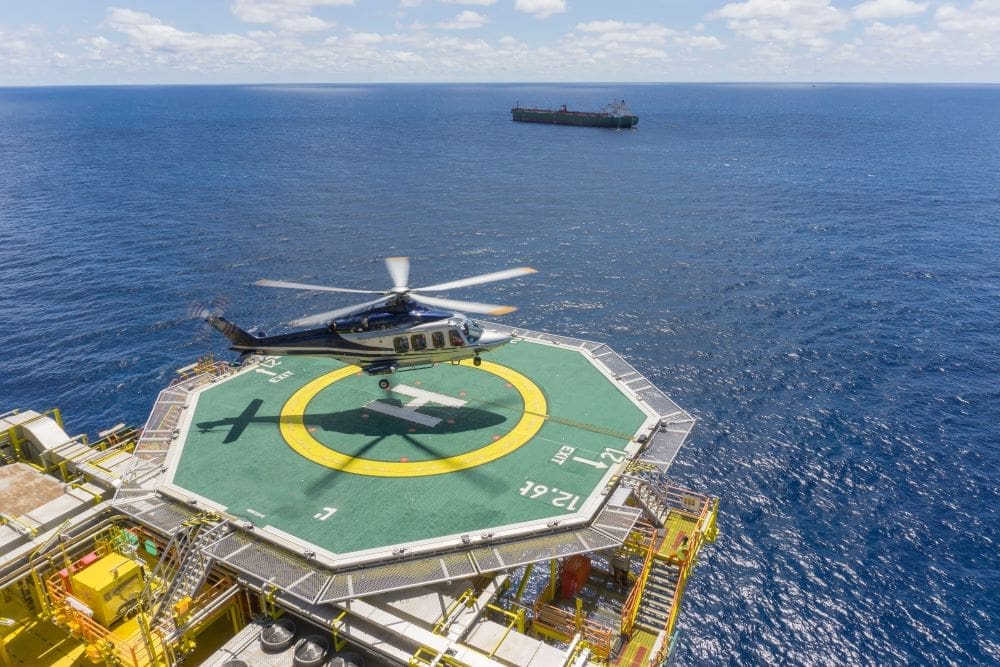As OPITO, the global safety and skills organization for the energy industry, launches regionally specific helideck standards for the Americas, Product Development Manager Lucie Booth explains how it will enhance safety in this critical offshore operation.
The entire offshore industry, and its workforce, is reliant on daily safe transfers to offshore installations in an open sea environment.
In April of this year, HeliOffshore released its annual report, which covers the period from 2013 to 2023, providing a global perspective on the safety performance of the offshore aviation industry over the last decade. While progress has been made, the results of the data show there’s more work to be done to ensure safe operational activity in the challenging offshore environment.
In the Gulf of Mexico (GOM), factors such as rising deep-water offshore development activity, the growth of the offshore wind industry, and the improved viability of offshore oil and gas projects mean the number of journeys to and from offshore helidecks in the region is only set to increase.
As a not-for-profit business, OPITO works in partnership with industry stakeholders to identify the need for new and improved global training and competence standards for the worldwide offshore workforce.

With a lack of standardized helideck team member training in the Gulf of Mexico, it became clear that the U.S. offshore industry was missing the opportunity to optimize safe operations on the helideck. Together with Maersk Training, and other industry partners, we have worked to develop robust training standards to meet the specific requirements of the region.
The Helideck Operations Initial Training (Americas) and Helideck Operations Emergency Response and Aviation Fuel Management Awareness standards were designed and updated to reflect legislation and operational differences in the Gulf of Mexico and are now being rolled out after a successful pilot.
The standards offer a minimum benchmark for training in relation to Helicopter Landing Officer (HLO) competence across the Americas to ensure the safe operation of helidecks, and the safety of those working in this area, as well as workers traveling offshore in helicopters.
Although CAP 437 and HSAC-RP are widely adopted as guidance within the region, these bespoke standards build on the regional specific requirements for HLOs and those undertaking emergency response and refueling duties.
They will ensure a consistent level of training required to meet recommended practices for safety across the entire Americas region. They will also mean greater flexibility for the workforce to move between projects. From initial conversations, we perceive the uptake will be very positive and are already looking to grow the number of training centers which can provide the courses to broaden the standards’ reach.
As in everything we do at OPITO, collaboration has been key in delivering these bespoke standards for the Americas. The energy industry is inherently complex, but if we can work together to standardize training while remaining flexible, this will have a powerful and effective impact on offshore safety worldwide.
OPITO is the global skills organization for the energy industry. There are over 500,000 OPITO registrations every year, across 50 countries through 230 accredited training centers.
OPITO works to develop a safe and skilled workforce by driving global standards and qualifications, creating workforce development solutions and leading dialogue with industries and governments. With operation centers in four regions – the U.K. and Europe, Middle East and Africa, Asia Pacific and the Americas – OPITO is driving safety and competency improvements to benefit the industry and providing career pathways and training opportunities for the current workforce and the next generation.
For more information, please visit www.opito.com
Headline photo courtesy of Shutterstock.
Lucie Booth is the Product Development Manager at OPITO with over 11 years’ experience working in the energy industry. Booth joined OPITO in March 2014 and has held a number of product assurance and development roles, and was appointed to her current role in April 2023.
Booth has a passion for ensuring every individual can reach their own learning potential. Key achievements to date have been the development and review of multiple products, in particular the growth of OPITO’s qualification portfolio, achieving and maintaining OPITO’s SCQF accreditation, and the governance of OPITO’s awarding body activity.
Booth is an active member in a number of external forums including OEUK’s aviation and hydrogen groups.







